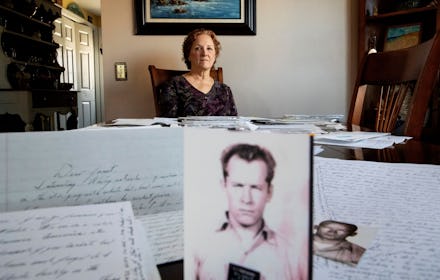One of America's most notorious mobsters was apparently part of the CIA's secret drug program

One of the most bizarre and disturbing government programs in American history is in the news again. On Tuesday, the Associated Press reported that a member of the jury in the trial of James “Whitey” Bulger, the infamous Boston mobster convicted in 2013 of killing eleven people between the 1970s and 1990s, has expressed regret over voting to convict the mobster of murder. Her reason? She ended up corresponding with Bulger while he was in prison, and he told her that he’d been subjected to the CIA’s infamous MK-ULTRA program, in which prisoners and other people were dosed with LSD dozens of times in order to study the drug’s potential for mind control.
Yes, you read that right — mind control. In light of the revelation, trial witness Janet Uhlar spoke to AP about her feelings of regret over convicting Bulger of murder.
“Had I known [about Bulger’s involvement in MK-ULTRA], I would have absolutely held off on the murder charges,” Uhlar told AP. “He didn’t murder prior to the LSD. His brain may have been altered, so how could you say he was really guilty?”
Bulger was known as one of the most vicious mobsters in Boston for much of his life. He was notoriously aided by corrupt officials within the FBI, who gave him leeway to commit crimes in return for his assistance with informing on his rivals. After he was tipped off to plans for his arrest, Bulger went on the run and spent 16 years living in hiding in Southern California.
After his conviction, Uhlar began exchanging letters with Bulger in prison. There, he told her that he’d been subjected to the secret CIA program during his first stretch in federal prison, in the late 1950s. That’s when, he told her, the CIA dosed him with acid more than 50 times.
Bulger was apparently offered reduced time in prison in exchange for his participation in MK-ULTRA. Subjects were told the program was being used to try and find a cure for schizophrenia. Agents “appealed to our sense of doing something worthwhile for society,” Bulger said in one of his letters to Uhlar.
“Sleep was full of violent nightmares and wake up every hour or so — still that way — since ’57.”
MK-ULTRA has a dark and sordid history. The top-secret program was in effect between 1953 and 1973 before being revealed to the public in congressional hearings in 1975. Fearing that Cold War enemies like Russia and China were using mind control on American prisoners captured during the Korean War, the U.S. government authorized the CIA to use practically any means at its disposal to develop mind control techniques of its own. The experiments ranged from doses of hallucinogens to electroshock therapy and paralytics. A doctor named Sidney Gottlieb oversaw the hallucinogenic experiments, which took place both at Stanford University labs and in the field, in prisons, and at other sites. In one operation known as Midnight Climax, CIA agents used prostitutes to lure men to a house where they were secretly dosed with LSD and then observed.
The CIA destroyed many records pertaining to MK-ULTRA after the program was ended in 1973. To date, there is still no full accounting of how many people were subject to the experimental drug treatments.
Bulger wasn’t the only notable person to take part in MK-ULTRA, either: Ted Kacyznski (better known as the Unabomber), One Flew Over The Cuckoos Nest author and LSD evangelist Ken Kesey, and Grateful Dead lyricist Robert Hunter were also given doses as part of the program.
Uhlar first learned that Bulger was part of the program after noticing that the mobster would often write to her late at night. “He always seemed to be writing at 1, 2, or 3 in the morning and when I asked him why, he said it was because of the hallucinations,” Uhlar said. Bulger then explained that he’d been unable to sleep soundly due to the horrific nightmares and hallucinations he’d experienced regularly since receiving LSD from the government in prison.
“Sleep was full of violent nightmares and wake up every hour or so — still that way — since ’57,” he wrote in one letter to Uhlar. In another, he wrote: “Auditory and visual hallucinations and violent nightmares — still have them — always slept with lights on helps when I wake up about every hour from nightmares.”
Uhlar told AP that she developed regrets after reading about the history of the MK-ULTRA program. “It was encouraging to know I wasn’t losing my mind, thinking this was important,” she said. “It told me, this is huge. I mean, how many lives were affected by this? We have no idea.”